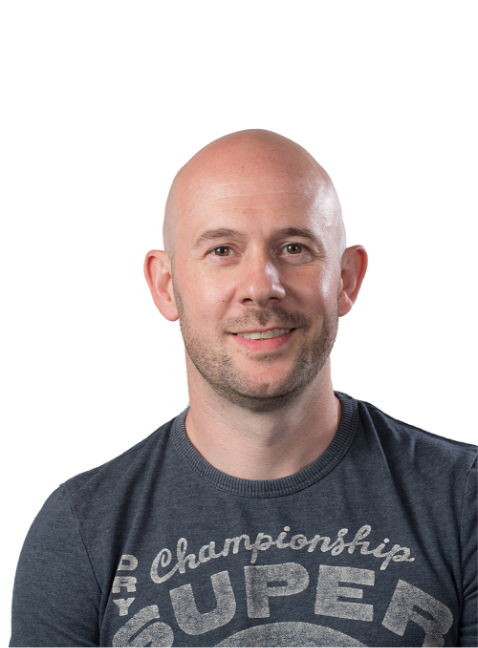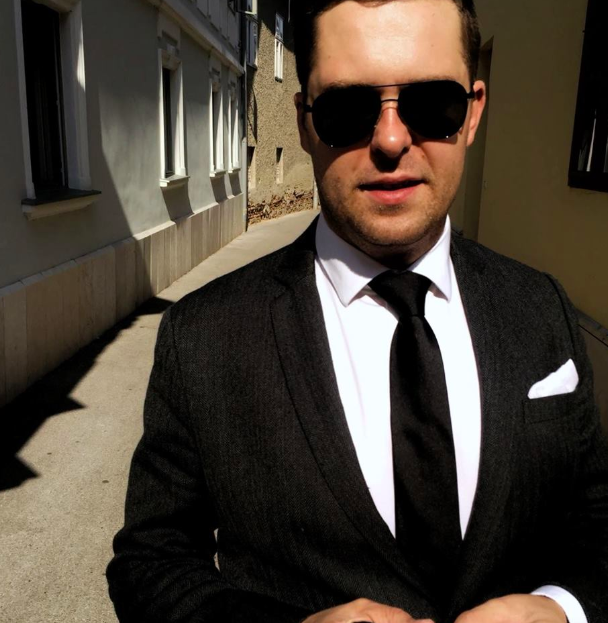
How the Development team got their jobs at Reddico
Have you ever wondered how to become a developer? Our team has taken different routes to get to their jobs here – with some surprising diversions along the way. We asked them to explain how they’ve progressed over the years.
Kirk, Head of Development and Technology
“There were two things I wanted to be when I was at school. I always knew I wanted to be a computer programmer, a computer engineer, something like that. I started programming when I was eight years old, so for me that was something I always knew I was going to do. I did have this sideline dream of becoming an actor for years too. In school, I did Drama and a lot of science-based subjects. After realising how hard it was to get into the acting industry, I followed my true passion instead.
“I did my degree in Computer Science at Aston University. I wouldn’t say it was a waste of time, but I probably could have been where I am now without doing it. I don’t think it added anything to me, other than social benefits.
“For my first-ever job, I worked as a tailor’s assistant, a Saturday job when I was at school. This is how long ago it was: the boss used to sit at the back of the store smoking cigars all day with all the suits around him.
“I did an internship at a company called X-Tant, which then became TeleWest, which is now known as Virgin Media. I worked for them when they very first created a cable network. There weren’t many of us – probably about thirty, forty – and I developed software for the very first set-top boxes for cable TV in the UK. That was really cool, I really enjoyed that. It made me realise even more so that I didn’t really need to be at university. When I graduated, I actually had a year’s worth of solid commercial experience.
|
|
“Skipping on a number of years (and numerous jobs in programming), I then started my own agency with a few people I worked with at the time. Our agency was very similar to this one, offering SEO and web design, and later started to create our own software in the social media space. We raised external funding through investors, but a lot of the control was given over to these big funders and they stripped away the agency element of the company, which we didn’t really want to do. It shrunk the company quite massively to focus on one piece of software, and they took it in a direction none of us were happy with. I sold my shares and walked away from it.
“I freelanced for a little bit, helping out a few people that I know with some exciting projects, and then I thought, well, it’s time to look for a job now. I had a very strict set of criteria of what I wanted – I wanted to work for an agency that held similar values to my own and had the right morals, and was going in the right direction.
“I spent ages looking round all different agencies. I didn’t look for jobs specifically, I didn’t look at jobs boards or anything like that, I just looked at agencies that I wanted to work for. Reddico was top of my list.
“I reached out and spoke to Craig [McDermott, Director], then came in and met Craig and Nick [Redding, Director] a couple of times. I was in SEO first, because development wasn’t as much of a thing at that time at Reddico. I’ve got skills in both, so I used what I’ve got to do the work that was needed. I gradually moved over – and now dev is its own department!”
Jack, Developer
“I did the more creative subjects when I was at school, Media and Photography, knowing that they were perhaps viewed as less challenging – which is not the case! I never knew, really, what I wanted to do. I knew I liked the idea of going down that digital path, that industry.
“My old man used to run a digital agency and I figured that one day I’d work for him. That just never came to fruition because it’s business, it moved on, but I found myself building up all these skills. At sixteen, seventeen, I started being a bedroom coder.
|
|
“I wasn’t satisfied with the challenges on my Digital Media course; I didn’t feel like it covered enough coding or development. (I probably should have done computer science and Business instead.) So I asked my dad if he had any websites I could build. He was reluctant because he hadn’t seen me build any yet, but eventually he took a punt on me and he was quite impressed with it. That gave me a bit of confidence to carry on – the end result reached a professional client.
“I came out of uni and I was a little bit lost, really. I knew that I still had this desire to be in agencies and do stuff that was digital. By that point, I was doing WordPress builds and stuff like that, something I knew there was quite a demand for. It allowed me to get freelance work, get a bit of a grip on handling clients myself and not going through account managers.
“I went to an agency that didn’t really fit with my plan. I wanted to grow quite quickly – on reflection, I think I was naive and over-ambitious, and thought that I was better than I was. Actually, it wasn’t until I came here [Reddico] and met Kirk that I realised, maybe you’re not so hot! There’s a lot of other people who have knowledge to offer me. That [the first agency] came to an end, and then I moved on to freelancing for a year and a bit.
“But I wanted more job security, holidays, sick pay, and I wanted regular work and a new challenge. It’s much easier when you’ve got lots of people around you – I think that’s something I missed when I was a bit of a one-man band. I came here and I realised how valuable it is to have colleagues.
“I went to get my hair cut and I was telling him (the barber) about coding, and he’d cut someone’s hair a couple of minutes before who did something with computers – that was Craig. He said we should have a chat, so a month later I went in when Craig was there and the barber said, ‘You two! Meet, talk.’
“We did, then exchanged a couple of emails, but I had other freelance stuff building up, so I went quiet for a while. That ship had started to sail, then a recruitment agent got in touch and said they had a role at a company called Reddico. She reconnected us – and here I am. Definitely a good move.”
Ainsley, Midweight Developer
“I had a big passion for music and technology when I was younger and I really wanted to buy some decks. My mum has always told me that if you want something, you save up and pay for it, we’re not going to give it to you with a silver spoon, you’re learning the true meaning of money. So I started a paper round and I remember just riding around on my bike in the pouring rain, desperately trying to save up for these decks. That was my first job, as well as a Saturday shift in a bakery, where I cleaned out the huge machines – and ate a tonne of doughnuts in the process!
“I managed to save up half. My mum saw that I was serious, so she chipped in the rest of the money. Then one day I came home, and there they were, these two massive boxes hidden under a blanket in the living room. It was amazing.
|
|
“I absolutely loved my degree. It was really practical, so for my dissertation I recorded an album. I did lots of covers of Joy Division and a few trance numbers that I really enjoyed. I got to record live bands, go out… It was a really good degree, but I soon learnt that it isn’t what you know, it’s who you know, which is why I couldn’t break into the music industry.
“Reality soon hit home and I realised I had to pay the rent. So I got a job as a waiter in a restaurant in London. I stayed there for about eight years, working my way up the chain till I was Assistant Restaurant Manager. But working nights wasn’t for me.
“The hospitality industry was rewarding to a certain extent, but you couldn’t have a life outside of it. This is why coming here is a completely different ballgame. For five years I would get up at half four and get home at half four.
“I did a course in Java, Javascript, SQL & Web Fundamentals before I came here. It was tough, but I found real-world coding completely different to what I’d studied, and ended up in the same situation as when I was trying to crack the music industry. Employers wanted to hire a junior developer with the salary of an intern and five years of experience. But then I found Reddico when I was looking online. I came in for the interview and the rest is history, really.
“I love it here. Everyone seems like they’re content with their jobs, and what makes such an amazing difference for me is the fact that I really like what I’m doing. That makes it dangerous, because you can end up doing stuff when you’re not meant to be, but it’s really motivating and I have a passion for it. You get a sense of accomplishment. You just end up staring at the clock if you’re not happy, but that doesn’t happen here.
“I feel like I’ve progressed an unbelievable amount. Sometimes you’re thrown in the deep end, but you have other people mentoring you and you get the help when you need it. Getting a promotion was absolutely amazing. I didn’t think that I was going to get a job, let alone that I’d be working higher up. My advice is just carry on learning; never stop learning. Especially with development.”
Look out for part five, featuring our designer, next month.
Part 1: The content team
Part 2: The SEO team
Part 3: The PPC team
Sign-up to Reddico News
To keep up-to-date with the latest developments in the world of SEO, our insights, industry case studies and company news, sign-up here.








